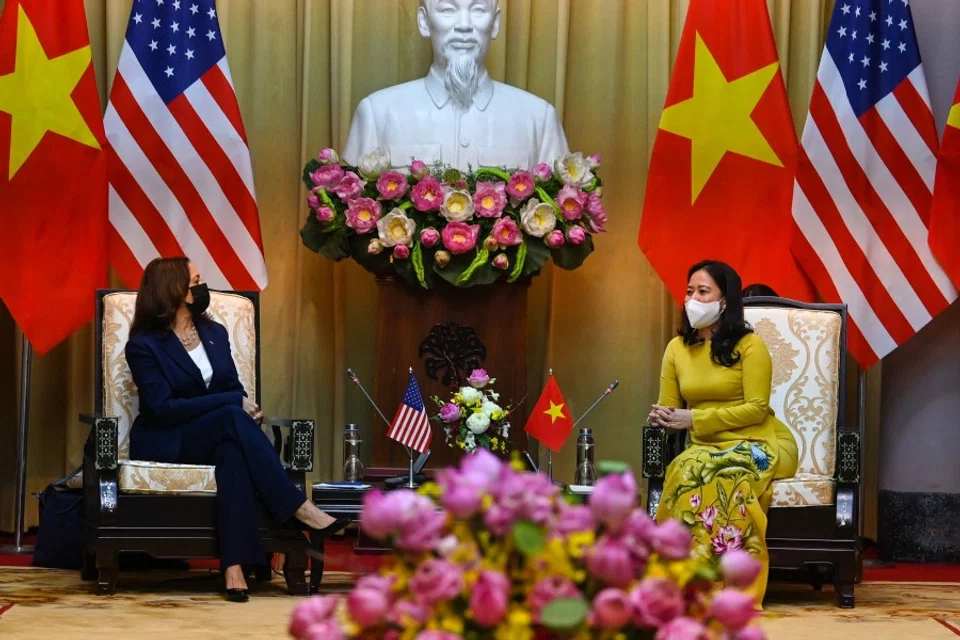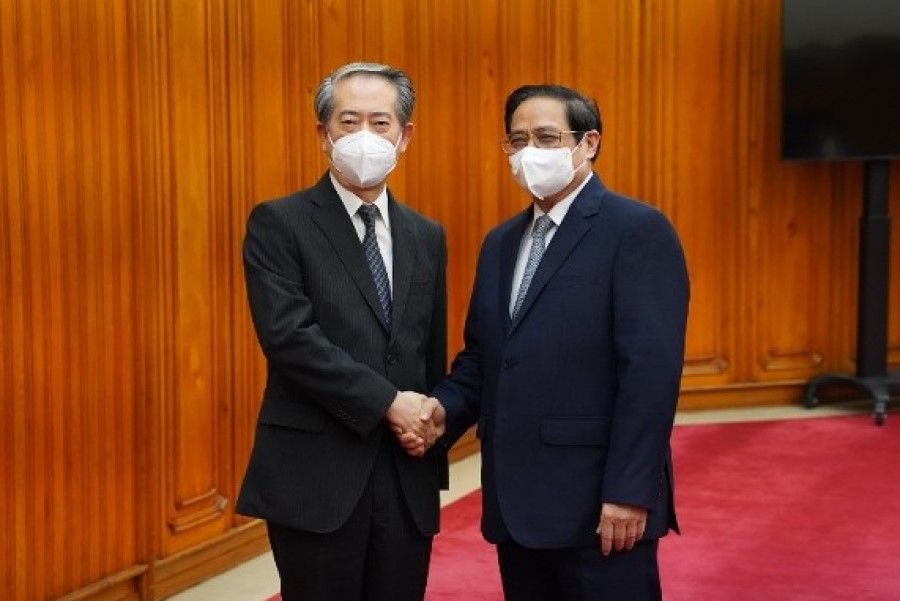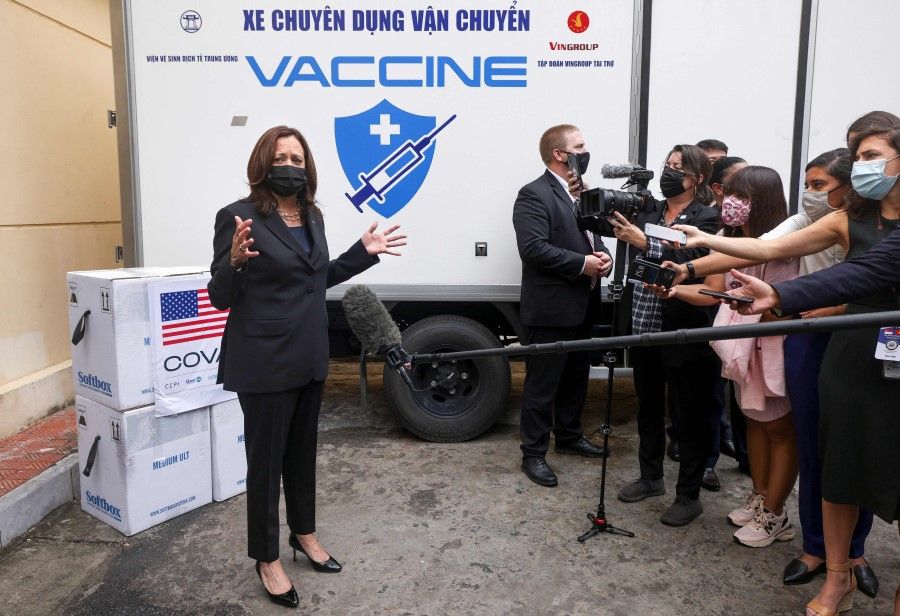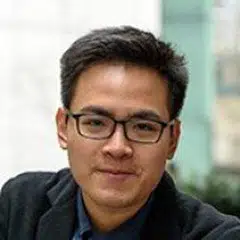Deepening US-Vietnam ties: Less geopolitics, more human security

During her visit to Vietnam last month, US Vice-President Kamala Harris expressed Washington's hope to upgrade bilateral relations to a strategic partnership. This was a logical move since the relationship has gone from strength to strength. In 2013, the two countries established a comprehensive partnership. Hanoi is also increasingly important in Washington's efforts to counter Beijing's maritime assertiveness in the South China Sea.
Yet, interestingly, when asked by the press what a strategic partnership would entail, Harris did not bring up the South China Sea issue. Instead, she explained that the two countries would strategically collaborate to tackle the "challenges of tomorrow", such as future pandemics, climate change and supply chain disruptions.
These topics come under the umbrella of "human security" - a concept that gives primacy to protecting the survival, livelihood, and wellbeing of the people. The US and other nations in the so-called Quad (Australia, India and Japan) have also discussed how they can assist the region with human security-related issues such as Covid-19 vaccine access and climate change.
This is a welcome development, as a partnership built on people-centric security will provide a stronger foundation for enhanced US-Vietnam relations as compared to the track that primarily revolves around traditional state-centric security.
Two factors support this view: Vietnam's defence strategy and Vietnamese leaders' appreciation of the human security concept.
Under Vietnam's "cooperation and struggle" strategy, China is a "target of struggle" in the South China Sea but also a close economic and political partner.
First, there are now still limits as to how far Vietnam is willing to work with the US in the domain of traditional security, particularly military alignment. Despite growing defence ties with Washington, Hanoi still prefers a self-reliant and independent foreign policy. This involves carefully balancing between the US and China.
Under Vietnam's "cooperation and struggle" strategy, China is a "target of struggle" in the South China Sea but also a close economic and political partner. Therefore, Vietnam strives to preserve good ties with its northern neighbour despite ongoing tensions in the South China Sea.

A clear example occurred before Harris touched down in Hanoi. Vietnamese Prime Minister Pham Minh Chinh received Chinese ambassador to Vietnam Xiong Bo and affirmed that Vietnam would not align itself with one country against another. This is one of Vietnam's "four-nos" defence policy principles - the other three being no involvement in military alliances, no hosting of foreign military bases in Vietnamese territory, and no use of force in solving international disputes. These principles have guided Vietnam's interactions with the US and China so far. Unless a drastic change occurs in the security environment, Vietnam is unlikely to abandon these principles.
...cooperation on human security gives America opportunities to help Vietnam address its most pressing issues, thereby deepening bilateral ties.
Second, Vietnamese leaders have come to appreciate the importance of human security in Vietnam's comprehensive national security outlook. The Communist Party of Vietnam's political report presented at its 13th Congress in January 2021 stresses the need to "ensure social security and human security; proactively adapt to climate change and mitigate natural disasters, combat epidemics, protect the people's health; sustainably manage and exploit resources, prioritise environmental protection, ensure sustainable development."
Non-traditional security threats can undermine Vietnam's socio-economic development and, consequently, public trust in the government. The ongoing devastating fourth wave of Covid-19 in Vietnam illustrates this point. Thus, cooperation on human security gives America opportunities to help Vietnam address its most pressing issues, thereby deepening bilateral ties.
Indeed, bilateral cooperation on human security featured prominently on the agenda of Harris's recent visit to Vietnam. During the visit, the US donated another one million Covid-19 vaccine doses to Vietnam and opened the Southeast Asia Regional Office of the US Centers for Disease Control and Prevention (CDC) in Hanoi. This will allow Vietnam to work closely with the US to improve regional response to health threats and contribute to Vietnam's efforts to improve its own health management.

Harris also announced the Mekong Coastal Habitat Conservation project that seeks to "protect key coastal habitats in the Mekong Delta region for sustainable fisheries, climate change adaptation and biodiversity conservation". The fertile Mekong Delta region, which plays a vital role in Vietnam's food security and economic growth, has been threatened by rising sea levels and saltwater intrusion due to climate change as well as damming projects of upstream countries. The two sides also agreed on the utility of peaceful exploration of space in tackling climate change.
A people-centred - in this case, a victim-centred approach - will be critical in promoting reconciliation between the two former foes and further deepening their relationship.
In a related move, during his visit to Hanoi in late July, US Defence Secretary Lloyd Austin also reaffirmed America's commitment to addressing war legacy issues. This has contributed to the deepening of bilateral trust even as the two countries seek to manage the historical legacies of the Vietnam War.
During the visit, the two countries launched the Vietnamese Wartime Accounting Initiative, under which they worked together to locate, identify, and recover the remains of Vietnamese soldiers who were killed during the war but remain unaccounted for. This programme will bring closure to many families and accelerate the healing process of the Vietnamese people.
Austin and his Vietnamese counterpart Phan Van Giang also discussed continuing searches for American soldiers' remains, the removal of unexploded ordnance, and dioxin decontamination. Moving forward, greater effort should be expended in mitigating the health effects of dioxin that affect millions of Vietnamese as well as tens of thousands of American veterans. A people-centred - in this case, a victim-centred approach - will be critical in promoting reconciliation between the two former foes and further deepening their relationship.
While security cooperation in geopolitical terms has received much media attention, human security partnerships will net greater mileage in pushing forward US-Vietnam ties. Therefore, the significance of more quotidian issues like health security, climate change, and supporting individuals affected by war legacies should not be overlooked.
This article was first published by ISEAS - Yusof Ishak Institute as a Fulcrum commentary.
Related: Facing frenemy China, Vietnam shall edge closer to America | China should be worried about political developments in Vietnam, not economic rivalry | Feisty and delicate: Vietnam's approach to handling great power rivalry | Why the Vietnamese embrace US vaccines but shun Chinese ones | Vietnamese still favours the US despite Afghanistan spectre
